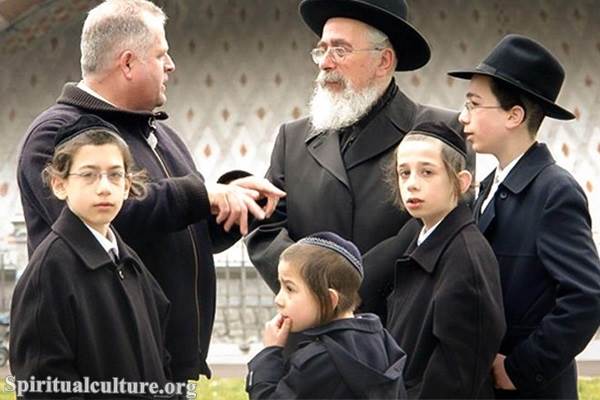From the ancient days of the Torah to the modern yeshiva, the Jewish tradition has always placed study at the heart of spiritual life. But why? What is it about learning—about reading, questioning, analyzing—that holds such an elevated place in Jewish culture and consciousness?
As Spiritual Culture, we invite you to reflect deeply on this profound and time-honored truth: that in Judaism, learning is not merely a task for the scholar, but a sacred endeavor for the soul. It is a form of worship, a path to justice, and a daily act of devotion. This article will explore the centrality of study in Jewish life, from biblical roots to rabbinic traditions, and from mystical teachings to modern implications. In doing so, we’ll discover how the pursuit of wisdom shapes not only a people, but a purpose-filled life.
The Command to Study: Learning as a Divine Obligation
“And you shall teach them diligently to your children…” (Deuteronomy 6:7)
The call to study is not optional in Jewish tradition—it is commanded. In the Shema Yisrael, recited daily by observant Jews, the instruction to “teach [these words] diligently” is clear and central. The Torah itself is not merely a historical record or a legal document; it is a living covenant meant to be studied, internalized, and lived.
To study is to engage with the divine. In Pirkei Avot (Ethics of the Fathers), we are told:
“Turn it and turn it again, for everything is in it.” (Pirkei Avot 5:22)
This refers to the Torah, and it reflects the belief that within study lies endless insight. The act of turning the text—of re-reading, re-examining, and re-thinking—is a form of spiritual intimacy with God.
Study as Worship: Learning as a Form of Service
“Talmud Torah k’neged kulam” — “The study of Torah is equal to all [other commandments]” (Mishnah Peah 1:1)
In Jewish law and philosophy, Talmud Torah—the study of Torah—is considered not just one mitzvah among many, but the one that sustains all others. The sages taught that learning leads to action, and that without knowledge, even the most fervent zeal can be misguided.
But more than utility, study is sacred. It is a way of honoring God with the mind and soul. When a person opens a sacred text, they join a lineage that stretches back to Sinai, connecting with Moses, with the prophets, with generations of sages and seekers.
A Yeshiva as Sanctuary
The yeshiva, or traditional Jewish house of learning, is often compared to a temple. Just as sacrifices were once offered in Jerusalem, now time, attention, and intellectual effort are offered on the altar of learning. The sacredness of space has become the sacredness of study.
A Culture of Questioning: Learning Through Debate
“Elu v’elu divrei Elohim chayim” — “These and those are the words of the living God” (Talmud, Eruvin 13b)
Judaism does not shy away from disagreement; it reveres it. The Talmud itself is structured around argument—an ongoing, multi-generational debate over the interpretation of law, ethics, and theology. This is not seen as division but as devotion. Every opinion, even those that are ultimately not followed, is preserved in the text.
The Sacredness of Disagreement
In Jewish thought, learning thrives not by silencing dissent but by honoring it. To challenge, to question, to say “But what if…” is not impiety—it is participation. Through this dialogic tradition, Jewish study becomes not a monologue but a symphony of voices across time.
The Havruta Model: Learning in Pairs
In many yeshivot, students study in havruta—a paired format of learning where partners argue, test, and sharpen each other’s understanding. This reflects the belief that truth emerges not in isolation but in relationship.
The Generational Chain: Learning as Cultural Continuity
“Moses received the Torah from Sinai and transmitted it…” (Pirkei Avot 1:1)
Jewish tradition reveres mesorah, the chain of transmission. Learning is not simply for the learner’s benefit—it is a link in an unbroken chain that stretches back to the giving of the Torah. Each generation is responsible for receiving, deepening, and transmitting wisdom forward.
Parents and Children
The duty to teach children is foundational in Jewish law. Passover, for example, is built around the Four Questions and the responsive teaching between parent and child. Study is not relegated to rabbis or scholars—it begins in the home, around the table, in daily conversation.
Lifelong Learning
In Judaism, one never “graduates” from Torah study. Even the greatest sages were called talmid chacham—wise students. This humility reflects the core truth: that the Divine is infinite, and therefore so is the learning.
Study and Social Justice: Learning for the Sake of Action
“It is not the study that is the main thing, but the doing” (Pirkei Avot 1:17)
While study is sacred, it is never an end in itself. Torah study is meant to lead to mitzvot—righteous deeds. The prophets thundered against those who studied without practicing justice or compassion.
Torah and Ethics
Rabbi Abraham Joshua Heschel, a modern Jewish thinker and activist, often said he “prayed with his feet” during civil rights marches. For Heschel, study and action were one. To study Torah is to learn the way of justice, kindness, and humility.
Halakhah: The Path of Learning into Living
Jewish law (halakhah) literally means “the way” or “the path.” It represents the embodiment of study into daily practice. Learning leads not just to knowing, but to becoming.
Mystical Dimensions: The Soul in Study
“The Torah and God are one” (Zohar)
In Kabbalah, the Jewish mystical tradition, study is not just a mental activity but a soul encounter. When one studies Torah with love and awe, they connect to the very essence of the Divine. Every letter is sacred, every interpretation a path into divine realms.
The Letters as Living Forces
In mystical teachings, the Hebrew letters themselves are alive. To study is to enter into the inner structure of the universe. The mystic does not merely seek understanding—they seek union.
Modern Applications: Learning in the 21st Century
A Tradition of Literacy
Throughout history, Jewish communities have prioritized education. Even in times of exile, poverty, or persecution, schools were established. Books were smuggled. Debates continued. This legacy has led to high rates of literacy and cultural flourishing.
Beyond the Yeshiva
Today, Jewish study occurs in many forms: online learning, university courses, community study circles. The principle remains: learning is sacred. Whether it’s a grandmother reading Psalms or a college student poring over Talmud on a screen, the sacred flame of study burns on.
Learning as Resistance, Resilience, and Renewal
“They tried to bury us, but they didn’t know we were seeds.” — A proverb that echoes Jewish survival through study
Jewish history is one of survival through meaning. In every generation, when Jews were expelled, persecuted, or forced into ghettos, they carried with them not gold, but books. They rebuilt not empires, but schools.
The Book as Ark
For many centuries, the Torah scroll replaced the temple, and the book became an ark. Learning became the homeland, the sanctuary, and the weapon of resilience. In times of despair, study was hope. In times of dislocation, study was home.
Reflect and Reimagine
The Jewish devotion to study is not simply about acquiring knowledge—it is about awakening the soul, honoring God, and sustaining a living tradition. Learning, in Jewish thought, is both a means and an end. It forms the bridge between past and future, law and love, mind and spirit.
Whether you are Jewish or not, the message is universal: that sacred learning is a path to a deeper, more meaningful life. It is an act of reverence, a tool of justice, a rhythm of community, and a mirror of the soul.
So let us ask: what are we studying? What truth are we seeking? And how might we carry forward this ancient wisdom into a world still thirsting for understanding?
May your learning be luminous. May your seeking be sacred.
— Spiritual Culture


